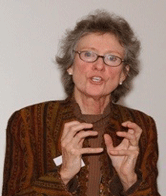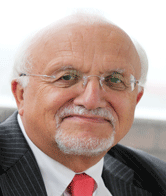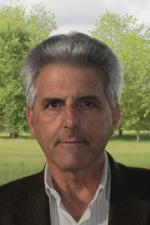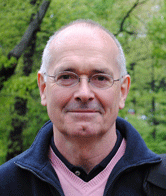TCD/UCD Public Lecture Series 2015-2016
The Department of Sociology at Trinity College Dublin (TCD), in collaboration with University College Dublin (UCD), has initiated a series of public lectures in which internationally acclaimed speakers will discuss contemporary sociological issues. The aim of this TCD-UCD Sociology Public Lecture Series is to promote informed and non-partisan debate and to offer new ideas on cutting-edge sociological issues including but not limited to responses to the current crisis. It provides a platform to deepen research and teaching synergies between TCD and UCD especially in light of HEA’s policy ‘Towards a Future Higher Education Landscape’. The series features two public lectures per term with one event hosted at TCD and the other at UCD.
Upcoming Speakers:
- Professor Arlie Russell Hochschild
- Professor Karl Ulrich Mayer
- Professor Neil Fligstein
- Professor John A. Hall
First Event
Title: Strangers in Their Own Land: Allegory, Emotion and Right Wing Opposition to Equality
Speaker: Professor Arlie Russell Hochschild (University of California, Berkeley)
Date and time: 10 September 2015, 6.30 pm
Venue: Goodbody Theatre, Sutherland Law Building, UCD
Video recording can be accessed here.
Abstract
In much of the world, the gap between rich and poor has widened. Yet, across Europe and the U.S. many rising right-wing groups oppose the very idea of equality. Why? Based on new fieldwork on the U.S. Tea Party - embraced by some quarter to a third of all voting Americans, I ask: what emotional needs does such a movement meet? How does emotion underlie political belief?
Biography
Arlie Russell Hochschild is Professor Emerita of Sociology at the University of California, Berkeley. Her books include: The Managed Heart, The Second Shift, The Time Bind, The Commercialization of Intimate Life and the co-edited Global Woman: Nannies, Maids and Sex Workers in the New Economy. Her latest book So How's the Family? And Other Essays includes essays on emotional labour – when do we enjoy doing it? – empathy, personal strategies for handling life in a time bind, and the global traffic in care workers. Here she follows up an earlier essay called ‘Love and Gold’ which focuses on care workers who leave their children and elderly in the South (the Philippines, Mexico, Sri Lanka for example) to care for the children and elderly of the North (the U.S. for example). What is the emotional effect of this ‘heart transplant’ on everyone involved? Whatever problem Hochschild is trying to figure out, she tries to keep a close eye on people's emotions. Hochschild currently explores the link between emotion and political persuasion. She also writes occasional articles on diverse topics such as empathy in children for the Los Angeles Times and on paternity leave for The Atlantic Monthly.
Second Event
Title: Science for What and for Whom? Max Weber and the European Research Policies
Speaker: Professor Karl Ulrich Mayer (Yale University)
Date and time: 1 October 2015, 7pm
Venue: Thomas Davis Theatre, Arts Building.
Video recording can be accessed here.
Abstract
With articles 179 to 190 of the Treaty of Lisbon of 2010 the European Union received a general mandate in the area of scientific research and for the formation of a European Research Union. Its main current carrier is the 8th framework for funding research, better known as “Horizon 2020” providing more than 70 billion Euros of funds for a period of 7 years. Almost one hundred years ago Max Weber provided an analysis of how the organisation of science impinges upon the motives of researchers and how the latter are related to its quality. What are the purposes of the European programs and how do they concern the motives of the individual researchers and the quality of EU-funded research today? This keynote will contrast Max Weber`s sociological view of science with its modern “European” counterpart and - on that basis – raises some fundamental critical concerns. EU science suffers – with the partial exception of the European Research Council - from an overload of goals, bureaucracy and policies, a consequent waste of resources and is lacking an adequate institutional structure. What we need are institutional designs for European research funding which allow for three things: first, clarity of purpose; second, protection from direct political influence; and third, an institutional commitment to the values of science.
Biography
Karl Ulrich Mayer is Stanley B. Resor Emeritus Professor of Sociology at Yale, Director Emeritus of the Max Planck Institute for Human Development in Berlin, Past President of the Leibniz Association (2010-2014) as well as the Principal Investigator of the German Life History Study (GLHS) (1979 – 2005). He studied social sciences and philosophy in Tübingen, Gonzaga University, Spokane (Wash.), Fordham University, New York , and Konstanz and held academic and research positions at Goethe University in Frankfurt/Main (1968-1973), the University of Mannheim (1973-1979), the Center for Surveys, Methods and Analyses in Mannheim (ZUMA) (1979-1983), the MPI for Human Development in Berlin (1983-2005) and Yale University (2003-2010) where he founded the Center for Research on Inequalities and the Life Course (CIQLE). From 2011 to 2014 he served on the Governing Board of Science Europe.
Third Event
Title: European Identities and Politics in the Wake of the Financial Crisis
Speaker: Professor Neil Fligstein (University of California, Berkeley)
Date and time: 9 March 2016, 7pm
Venue: Synge Theatre, Arts Building.
Please register here.
Abstract
The European Union’s political and economic integration project has grown dramatically since its inception in 1952. While the ultimate goal of the EU is unclear, one of its aspirations has been to attempt to create European citizens. The idea is that over time, citizens would look towards Europe as their main national identity. While the political and economic integration projects are quite far along, the national identity project has lagged far behind. The number of people who have primarily a European identity is quite small and has not increased much in the past 20 years. There are a far larger number of citizens for whom their national identity is paramount, but a European identity also exists. Since 2005, this group has grown smaller and the number of citizens with only a national identity has grown larger. The EU integration project has pushed citizens to value their national identities more and to look to their national governments to protect them. I examine the evidence for this in the context of the 2007-2009 financial crisis. I show that in countries most seriously hit by the crisis, national identities have increased dramatically and citizens with some European identity have decreased. These results help explain some of the current political impasse and suggest that issues such as terrorism and immigration are as likely to push Europeans apart as closer together.
Biography
Neil Fligstein is the Class of 1939 Chancellor’s Professor in the Department of Sociology at the University of California. He has made research contributions to the fields of economic sociology, organizational theory, and social stratification. He is the author of seven books including The Transformation of Corporate Control (Harvard University Press, 1993), The Architecture of Markets (Princeton University Press, 2001), Euroclash: The EU, European Identity and the Future of Europe (Oxford University Press, 2008), and A Theory of Fields (with Doug McAdam, Oxford University Press, 2012). He is currently working on a book about the financial crisis. Professor Fligstein has been studying various aspects of European economic, social and political integration for the past 20 years. he has done extensive work showing how the European political project changed the way that businesses operate and have expanded markets across Europe. He has also done work on "who is a European?" and how that reflects patterns of social interactions of people across European member states. His work shows how this plays into a highly limited and contested European politics.
Fourth Event
Title: The Importance of Being Civil
Speaker: Professor John A. Hall (McGill University, Canada)
Date and time: 27 April 2016, 7pm
Venue: Thomas Davis Theatre, Arts Building.
Abstract
Civility is desirable and possible, but can this fragile ideal be guaranteed? In this lecture John A. Hall explores the nature and advantages of civility throughout history and in our world today. The aim is to expand our understanding of civility as related to larger social forces—including revolution, imperialism, capitalism, nationalism, and war—and the ways that such elements limit the potential for civility. Combining wide-ranging historical and comparative evidence with social and moral theory, Hall examines how the nature of civility has fluctuated in the last three centuries, how it became lost, and how it was re-established in the second half of the twentieth century following the two world wars. He also considers why civility is currently breaking down and what can be done to mitigate this threat.
Biography
John A. Hall is the James McGill Professor of Comparative Historical Sociology at McGill University in Montreal, Canada. His previous posts include Harvard University, London School of Economics and Southampton University. He also held visiting professorships in Oxford, Copenhagen, Uppsala, Belfast, and Durham. He is author and editor of twenty five books including Powers and Liberties (Blackwell, 1985); Liberalism (Paladin, 1988); Coercion and Consent (Polity, 1994); International Orders, (Polity, 1996); Is America Breaking Apart? (Princeton,1999); Ernest Gellner (Verso, 2010), The Importance of Being Civil (Princeton 2013) and the World of States (Bloomsbury 2015).

